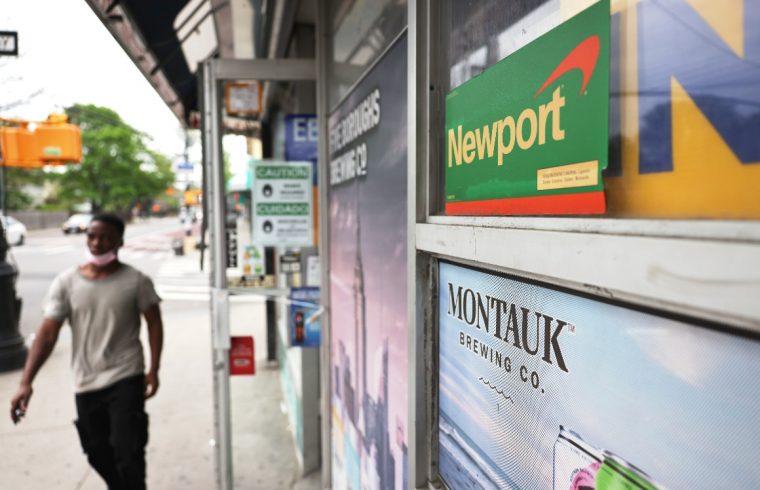
Opinion | The Sweet Smell of Government Overreach – POLITICO
Without debate, tobacco reduces lifespans and sabotages the otherwise healthy with debilitating illnesses. It’s a cancer-causing, heart-stopping, stroke-inducing, lung-sapping, stinky scourge. But does tobacco’s rap sheet make the proposed menthol ban just? The ACLU and other justice groups, drug policy shops and law enforcement question the wisdom of a ban that will come down hardest on Black and Brown communities. Aamra Ahmad, the ACLU’s senior legislative counsel, fears the ban will create a demand for an underground supply of mentholated smokes, and this underground will give police the pretext to conduct overreaching criminal investigations involving Black people and others based on the smell of their cigarette smoke.
“Time and time again, we see encounters with police over minor offenses—for Daunte Wright it was expired tags, for George Floyd it was using a counterfeit bill, for Eric Garner it was selling loose cigarettes—result in a killing,” Ahmad wrote.
The prohibitionists reject the slippery slope argument, noting that a ban won’t apply to consumers but to manufacturers, wholesalers and retailers. Why exempt users? Have the prohibitionists lost their nerve? But as Reason’s Jacob Grier points out, any illicit menthol market that rises would probably be run by people from inside the communities that consume the flavored cigarettes, giving police a wedge to probe otherwise peaceful conduct. Presently, in Massachusetts, a scattering of local jurisdictions in other states, and in Canada, where menthol cigarettes have been banned, menthol smugglers have entered the market.
The proposed ban poses a social justice paradox that its proponents have yet to grapple with. Where’s the fairness in banning menthol cigarettes, which are incredibly popular with Black consumers, but leaving undisturbed an equally unhealthful product, regular cigarettes, which are much more popular with white people? (About 20 percent of white smokers reach for menthol.) The ban would create a “Smoking while Black” system that punishes Blacks, even if it’s for “their own good” while allowing the majority of whites to smoke their preferred brand unmolested.
The prohibitionists counter that menthol is especially dangerous because it disguises the harshness of tobacco, giving it a unique appeal to young smokers. The canard must be snubbed out. Youth smoking any type of cigarette has dropped precipitously since the mid-1990s, with 16.1 percent of high school students smoking frequently in 1995 versus 1.3 percent in 2019. In fact, menthol cigarette use declined among youth smokers between 2011 and 2018. The data doesn’t suggest that menthol cigarettes present no peril for kids, but it does place the peril in context.
Back in 2009, the government sought to prohibit menthol cigarettes as part of a statutory ban that was passed against flavored cigarettes—coffee, cola, spice, dessert, candy, fruit and others. But menthol survived due to tobacco industry clout, and industry clout will surely stall or maybe even prevent a ban this time around. During the regulatory process, we need better explanations from the FDA for why it’s so hot to ban menthol. This was a misguided prohibition, too, because it blocked adults from buying flavored cigs in the name of protecting the kiddies. If sweetness carries such an extreme risk of addiction, why not ban Cap’n Crunch, too, or all the fruit- and candy-flavored alcoholic beverages because a kid might obtain one?
Another popular argument for a ban asserts that menthol cigarettes are harder to quit than non-mentholated brands and that their deletion from the marketplace will bring us that many steps closer to a tobacco-free society. That would be a great thing, but would it? Won’t many menthol smokers, unable to locate illicit menthol cigarettes, transfer their nicotine habits to non-mentholated cigarettes—or take up the smoking of mentholated pipe tobacco—and keep on smoking? A study of the Canadian menthol ban indicates the measure isn’t exactly the silver bullet some pretend it to be. Sixty-three percent of menthol smokers there tried to quit but 43 percent of non-menthol smokers tried to quit, too. In a follow-up, researchers found that 24 percent of daily menthol smokers quit after the ban compared to 14 percent of non-menthol smokers. Those are pretty slim declines for a lot of bother. Meanwhile, another study found that the Canadian ban did nothing to reduce youth smoking rates.
One reason menthol finds itself under attack is that the public-health industrial complex has noticed that Black smokers aren’t quitting cigarettes at anywhere near the rates of white smokers, and this disparity led some to believe that the key difference is menthol. But a May 2020 article in the scientific journal Nicotine and Tobacco Research gives another reason why the menthol ban might be quixotic. The authors, endorsers of the ban, found that Black smokers of menthol cigarettes have about 12 percent lower “odds of smoking cessation compared to non-menthol users,” but attributed the difference to the industry’s clamorous marketing to the Black community. Reduced marketing of menthol cigarettes might achieve some of the prohibitionists’ goals without all the heavy intervention.
It’s been a decadeslong, rough slog to reduce smoking from its dominant place in our culture to the subculture that it is today. America deserves a (virtual) cigar for that accomplishment! But we still have a long way to go to expunge the demon weed from our midst. Some strategies, though, are more just and human than others. We should continue to help people quit smoking with education and therapy programs. We should urge smokers to switch to comparatively safer products, like e-cigarettes. And we should discourage and shun the habit. But let’s stop short of making the sellers of menthol cigarettes—and by extension, users—pariahs for their practicing their vice. The FDA needs a lighter regulatory touch that relies less on the mashing of prohibitionist buttons.
******
Who smokes the most? The poor, the less-well educated. Blue-collar workers. Light me, Sidney, with an email to [email protected]. My email alerts have never smoked. My Twitter account favors Swisher Sweets. My RSS feed burns but does not smoke.






